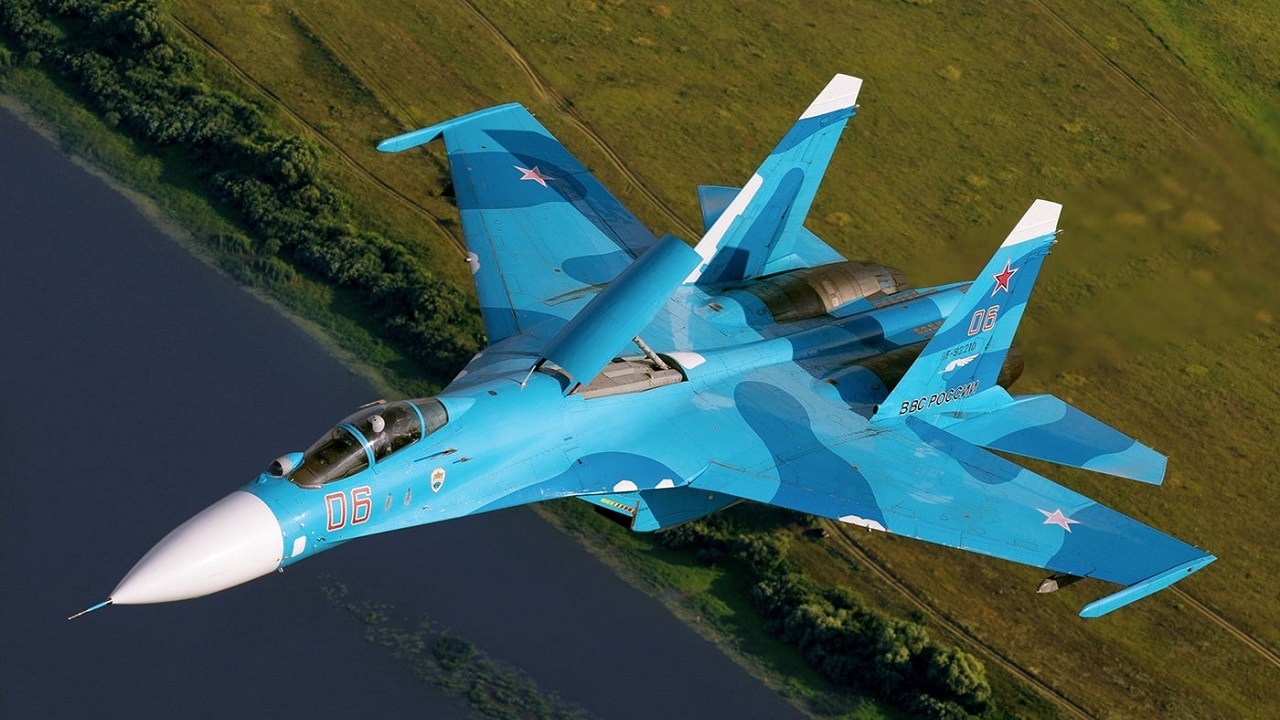Why Would Russia Attack A U.S. Drone Over International Waters? – According to U.S. European Command, a Russian fighter jet deliberately harassed and later collided with a U.S. drone somewhere over the Black Sea on Thursday.
The incident, which took place near the Crimean peninsula, forced the U.S. to down the MQ-9 Reaper unmanned aerial vehicle (UAV) in international waters.
U.S. Air Force Gen. James B. Hecker, the commander of U.S. Air Forces Europe and Africa, confirmed that the MQ-9 drone was conducting “routine operations” in international airspace and was later intercepted and hit by a Russian aircraft.
The U.S. blamed Russia for the incident, with Hecker describing Russia’s actions as “unsafe and unprofessional.”
Two Russian Su-27 fighter jets are understood to have tracked the American surveillance UAV as it flew through international airspace over the Black Sea.
According to U.S. European Command, the two Russian jets dropped fuel on the drone, recklessly flew in front of it, and by 7 am, one of the Russian jets collided with the drone’s propeller.
The impact forced the U.S. to down the drone, and while some reports suggested that the Russian jet crashed, U.S. defense officials say that the jet was forced to land in Crimea.
Why Did Russia Do It?
The incident appears to be an act of aggression, designed to intimidate, and the White House is treating it as such – but it may also have been part of an effort to obtain data from the drone.
U.S. military officials have reportedly wiped the software on the drone, making it difficult – if not impossible – for the Russians to obtain any data from the drone in the event that the Russians reach the wreckage before U.S. or NATO allies can.
Russian forces may have felt confident that they could get away with the attack, knowing that the United States could only salvage the wreckage by sending a ship into the Black Sea, where Russian military ships are still present, from the Bosphorus Strait.
At present, the United States cannot easily send any ships there, with Turkey refusing to allow any warship through the strait over the last several months.
Russian forces may also have been following orders from Moscow, given repeated complaints from the Russian government about U.S. intelligence-gathering missions taking place close to the Crimean peninsula.
A research report on Russian coercive signaling by the RAND Corporation also suggests that Russia deliberately attacked the drone with a view to changing ongoing military action.
Samuel Charap, a senior political scientist at RAND, noted on Twitter that the Russians likely have a clear military reason for their actions over the Black Sea and that Russian pilots “would have been following instructions from ground control, not freelancing.”
In the report, Charap and others argue that much of Russia’s “assertive, dangerous, or unsafe” activity is typically intended to shape patterns of U.S. or allied behavior.
“Such activity is almost by definition responsive not proactive. Moscow appears to be using coercive signals to send targeted messages regarding activities that it finds problematic,” the report explains.
The authors also explain how compellent signals from Russia are typically a response to U.S. and NATO behavior that Moscow deems “problematic,” likely indicating that Russia wants the United States to steer clear of Crimea and the Black Sea.
What Russia Said on Drone Incident
The Russian Ministry of Defense claims that the U.S. drone was flying in an area declared “off limits” near Crimea.
In a statement, the ministry also claimed that the Russian aircraft did not collide with the drone.
“As a result of a sharp maneuver, the MQ-9 drone went into uncontrollable flight with a loss of altitude and crashed into water,” the statement reads.
“The Russian fighters didn’t use their weapons or impact the unmanned aerial vehicle, and they safely returned to their base.”
What the U.S. Said
In a statement, White House National Security spokesman John Kirby insisted that Russia cannot stop the United States from flying in international airspace.
“If the message is that they want to deter or dissuade us from flying, and operating in international airspace, over the Black sea, then that message will fail,” Kirby said, adding that the U.S. will continue to operate over international waters, including the Black Sea.
“The Black Sea belongs to no one nation,” Kirby added.
U.S. senators roundly condemned Russia’s actions on Tuesday, too, slamming the move as “reckless.”
Senate Majority Leader Chuck Schumer (D. NY) said on the floor of the chamber that the intercept was “so dangerous and so brazen” that the U.S. Air Force was forced to deliberately crash the drone.
“It is another reckless act by President Putin and his military, and I want to tell Mr. Putin, stop this behavior before you are the cause of an unintended escalation,” Schumer said.
Schumer’s comments were echoed by Jack Reed (D. RI), the chairman of the Senate Armed Services Committee, who accused Russia of showing disregard for the “basic rule of international law.”
MORE: F-35 – The Best Fighter Jet Ever?
MORE: SR-72 – A Mach 6 Bomber?
MORE: Su-57 – Is Russia’s Stealth Fighter Doomed?
Jack Buckby is 19FortyFive’s Breaking News Editor. He is a British author, counter-extremism researcher, and journalist based in New York. Reporting on the U.K., Europe, and the U.S., he works to analyze and understand left-wing and right-wing radicalization, and reports on Western governments’ approaches to the pressing issues of today. His books and research papers explore these themes and propose pragmatic solutions to our increasingly polarized society.

